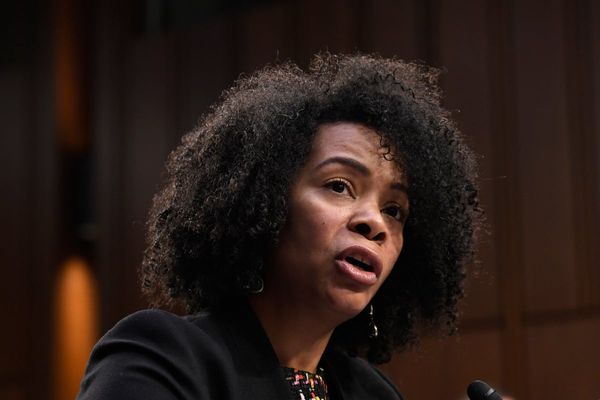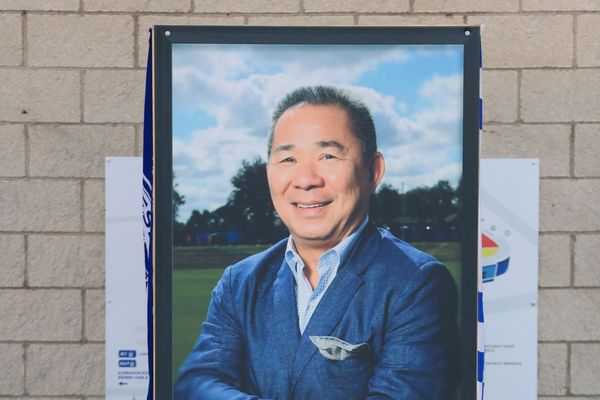ST. LOUIS — Rural counties across Missouri haven't been able to find enough residents to use up coronavirus vaccine sent to them for mass vaccination events in recent weeks, leaving thousands of surplus doses, even as the state's urban residents, desperate for a dose, drive hours to get in line.
In Putnam County, along the Iowa border, 1,488 doses remained at the end of a vaccination event last weekend. In southeast Missouri's Bollinger County, only about half of the available doses were used at an event Feb. 24, and the leftovers were sent elsewhere. And in Lewis County, near the state's northeast corner, another mass vaccination event concluded with hundreds of extra doses — enough for a follow-up day of appointments that ended up catering largely to people from far outside the area.
In total, more than 7,700 doses of vaccine were left over after mass vaccination events across the state last week, according to data from the Missouri Department of Public Safety. The records show that the remaining doses were usually transferred to another provider in the area or held by the health department for later use.
Over the course of those clinics, 152 doses were thrown away. But in only one documented case was it more than a handful: Putnam County said 143 doses spoiled, some for technical reasons — dislodged needles or duplicate appointments, for instance — and others when residents didn't show up for their slots.
The recurring accounts of unused doses at rural mass vaccination events have fueled anger and stoked questions about perceived distribution imbalances across the state. Officials in rural health departments also share confusion and frustration, saying their staffs have been wrongfully vilified after doses go unused.
"Everyone thinks that we are hogging the doses, but we truly are not," said Debbie Sommers, the administrator of the Lewis County Health Department. "I don't think it's a matter of rural versus urban. I think it's just a matter of there's not that much vaccine out there."
Residents of the St. Louis region say it's been discouraging to hear reports of unfilled appointments and wasted vaccine doses in certain rural areas — especially when "they'd have people knocking down the doors" to get the shots in St. Louis or Kansas City, said Randy Thompson, 68, of St. Charles.
"It burns me up. I think it does everybody else who reads these stories, too," said Thompson, who had not yet been vaccinated. "Why do they have so many there, and we don't have any here?"
But state agencies said on Friday that they are adjusting. For instance, rather than the typical 2,000 to 2,500 doses normally assigned to a mass vaccination clinic, an event on Friday in Scotland County was allotted 500 doses. And during a briefing on Thursday, Missouri Gov. Mike Parson said the state will begin transitioning mass vaccination teams to hold more of those large-scale events in the Kansas City and St. Louis areas.
"While vaccine distribution is based on population throughout each region, we do recognize that some Missourians are less interested in receiving a vaccine than others," Parson said. "Vaccine interest is often highest in the urban populations."
Thus far, officials have been allocating vaccine doses to each of the state's nine regions based on population. The 12-county region in which St. Louis is located is home to 37% of the state's population, and as of Tuesday, the state has sent 35% of its vaccine doses here. The Kansas City region is home to 23% of the state's population, and has gotten 20% of the state's doses.
Parson's office also said in a news release Thursday that beginning with the week of March 29, the state will shift its allocations to a system based on the number of unvaccinated, eligible people in each region.
At the Randolph County Health Department's first large-scale COVID-19 vaccine clinic, in late January, some people signed up but did not show up on the day of the event. And the department hadn't realized that some people had signed up more than once, said administrator Sharon Whisenand. The event had about 100 doses left over.
The Audrain County Health Department held a second-dose clinic on Feb. 25 and found that some of the expected recipients already had gotten their second doses elsewhere, according to administrator and CEO Craig Brace. The department redistributed roughly 60 doses to a clinic scheduled the next day in Cole County.
Bollinger County, near the southern end of the state, hosted a recent mass vaccination event run by the Missouri National Guard that was supplied with about 2,000 doses of vaccine. But only about half — 911 doses — were administered. Juanita Welker, the county health administrator, said an online registration might have been difficult for the area's rural and elderly population to navigate.
Health officials also said they have vaccinated hundreds of out-of-towners.
Washington County, more than an hour south of St. Louis, has been getting people from all over the state, said Shawnee Douglas, the administrator for the county health department. She theorized that many are applying for shots far and wide, to boost their odds.
In southwest Missouri, Jasper County health department administrator Tony Moehr estimated that around 20% of the people vaccinated Tuesday and Wednesday were from at least 100 miles away.
"I'm concerned that that may create some issues down the road," Moehr said. "We had several people that lived in areas like Kansas City, St. Louis, and fairly distant areas, that communicated to us at the clinic, 'We're not going to make the drive for the second dose, we'll just wait until we can get it at home.'"
Lewis County was given 2,000 doses of the vaccine for a mass vaccination event held on Feb. 23. About 330 of those doses went unused, prompting county health department workers to feverishly make calls — enough to triple the monthly phone bill, Sommers said — to line up additional takers for the vaccine on another day.
Lewis County held the follow-up event on Tuesday. "We did more out-of-county residents than we did county residents — way more," said Sommers.
The county's latest time slot for administering vaccinations was scheduled for 3:45 p.m. that day. But with so many long-distance recipients, coming from as far as Kansas City and St. Louis, the clinic didn't wrap up until 7 p.m.
"We refused to throw any dosages out, so we just waited on people," said Sommers. "We weren't just going to turn them away after driving 2 1/2 hours."







